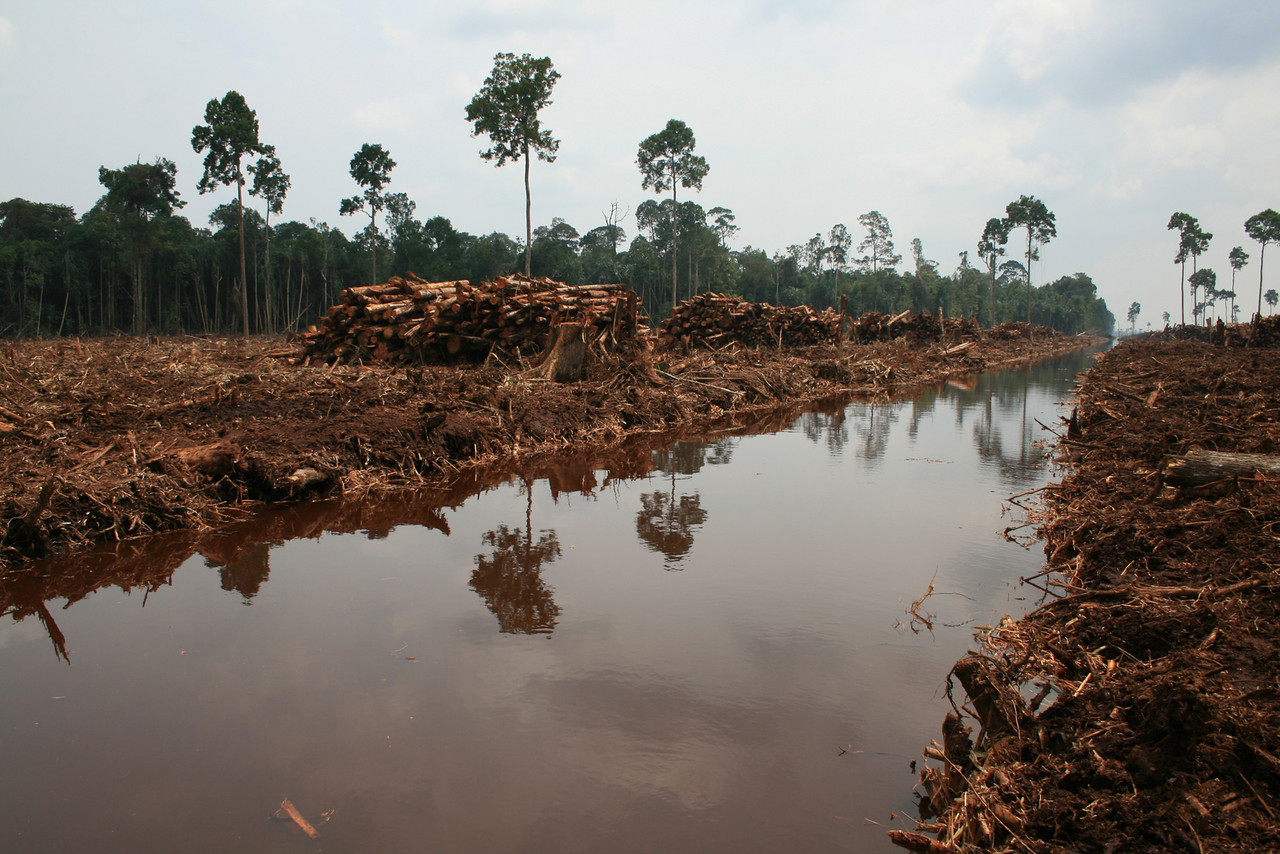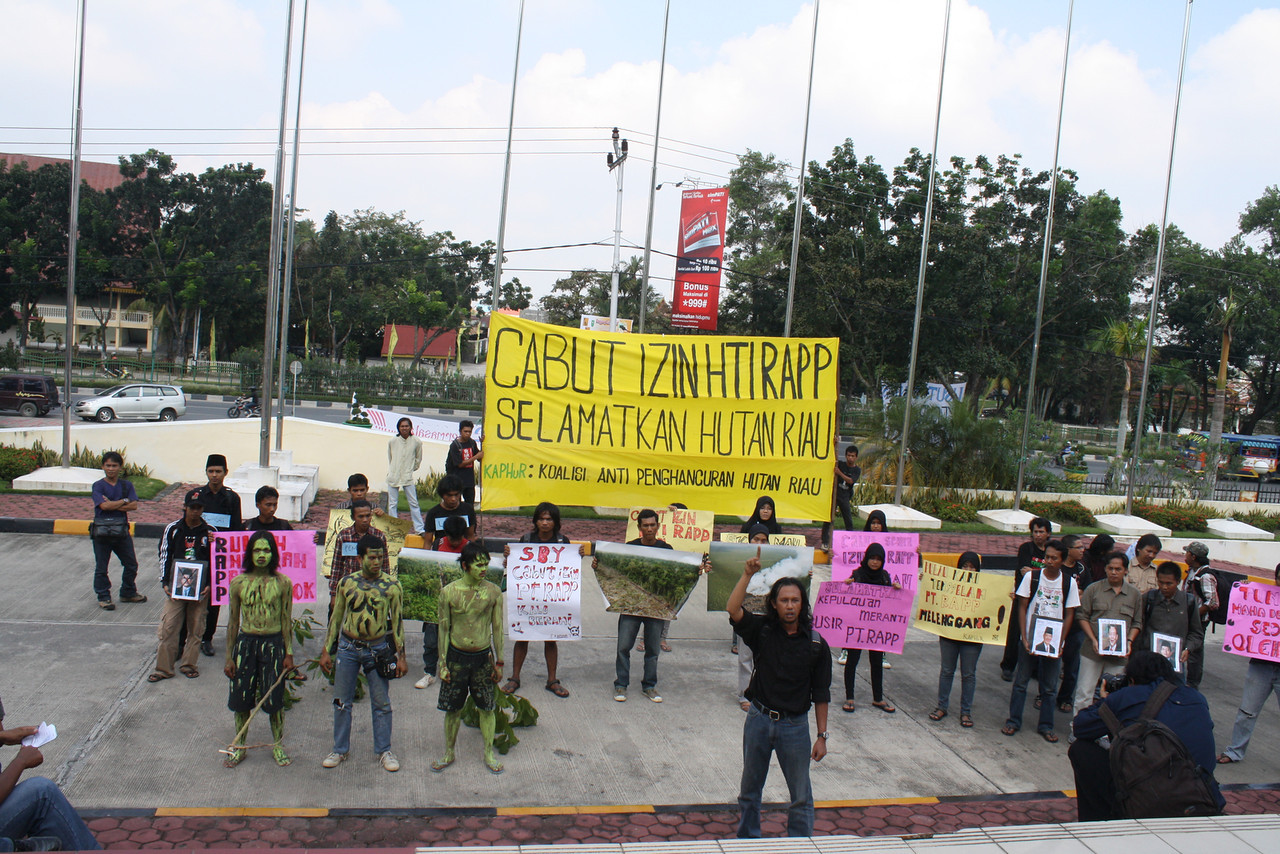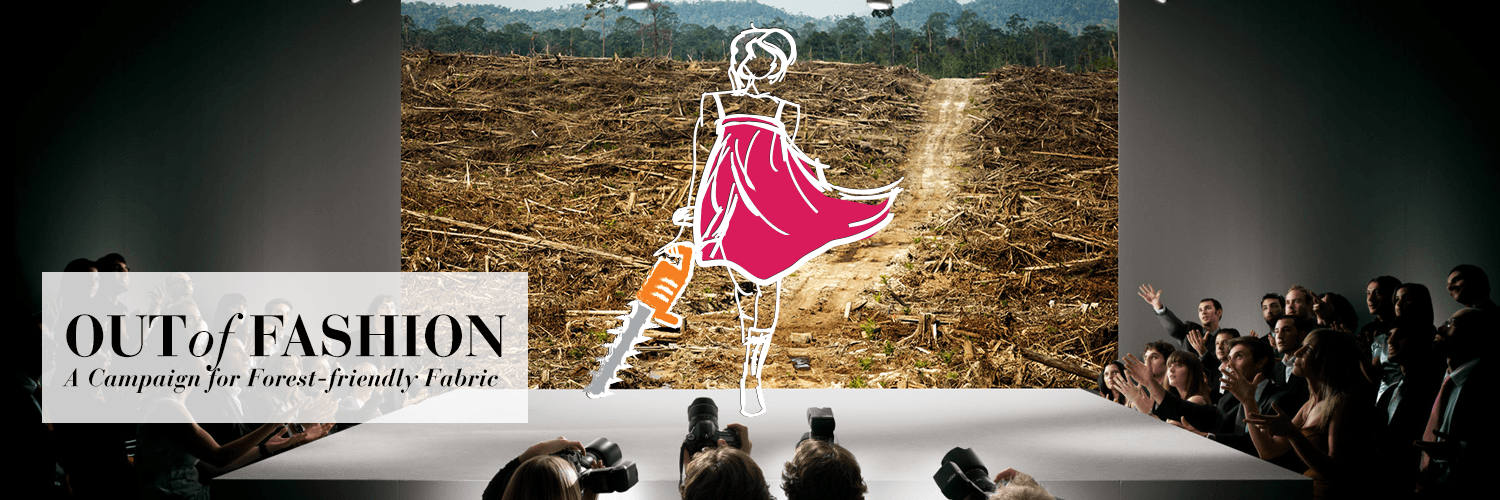So much is changing in the world of forests and forest fabric.
When we started the Out of Fashion campaign, in September of last year, very few of the major players in the wood-based fabrics (rayon, viscose, etc.) supply chain had commitments to protect forests and the communities who depend on them.

APRIL must address its legacy of land conflict and forest destruction.
A short re-cap: We started this campaign because we learned about communities in North Sumatra who were having their land stolen, and were losing their main source of livelihood – community owned forests – as the plantation company Toba Pulp Lestari clear cut these community forests and converted them into eucalyptus plantations. These eucalyptus trees are then clear-cut and processed into the dissolving pulp that is used to make viscose fiber, which is then spun and woven into fabrics like rayon, viscose, lyocel, and modal. Most of this pulp is being sold to Sateri, the third largest viscose company in the world. Sateri is owned by the Royal Golden Eagle group (RGE). RGE also own Asia Pacific Resources International Holdings Limited (or APRIL), the second biggest pulp and paper company in Indonesia.
That’s a lot of acronyms and complex corporate relationships, but here’s the thing: As of August of last year, none of Indonesia’s leading deforesters –Toba Pulp Lestari, Sateri, Royal Golden Eagle, nor APRIL– had acceptable environmental or social sustainability policies.
Now it’s early June 2015, and here’s the breakdown: Royal Golden Eagle and APRIL have just announced commitments and we expect Sateri to announce a policy in the next month or so. We expect that Toba Pulp Lestari will announce a policy in the next few months.
That’s good right? Yes… but it’s just the beginning. The bigger work comes with the actions companies take to implement these commitments, and the improved outcomes that result from those actions. RAN’s role – and yours – doesn’t end with a new policy or commitment.

Even with improvements, APRIL’s new policy will need to demonstrate changes on the ground. Shown here, a protest by the Anti-Forest Destruction Coalition Riau, banner reads “Revoke APRIL’s permits, save Riau’s forest.”
Yes, we’re watchdogs and we press companies to come up with and implement good action plans, but we’re in this to get changes for forests and communities on the ground. To do this we work with communities and allies to monitor and report on what’s happening with impacted communities. We work with allies with access to satellite data to watch what’s happening in the forests.
The APRIL announcement, which just came out this past week, is huge. As of last May 29th, 2015,, APRIL hasstopped the clearing of all forest areas, sparing an estimated 1000 hectares (about 2,500 acres) of rainforest each month from the chain saws – that’s real change on the ground. APRIL’s newly released policy also commits to protecting the rights of Indigenous and frontline communities, and to ensuring that conflicts with communities are addressed. It’s a great first step… but there’s still a lot more work to do. Getting real change on the ground, like securing access to land and getting remedy for past harm for communities, is even harder than getting the chainsaws turned off.
RAN’s Asia director, Lafcadio Cortesi, welcomed APRIL’s logging moratorium and improved policy, and highlighted these challenges ahead for the company in RAN’s recent statement:
“APRIL is one of the few remaining major companies to pulp natural rainforests to make paper. Today’s announcement of a moratorium on further clearance and improvements to its policy is a welcome step forward. However, the policy commitment must be supported by a transparent, time bound implementation road map, decisive actions and independent monitoring and verification of outcomes on the ground.
“In moving forward, APRIL must also address its legacy of land conflict, deforestation of critical species habitat and peatland conversion. We will be watching APRIL to see whether the company can transform its corporate culture and demonstrate transparency including independent monitoring and verification of its performance on key issues. In its operations and before any expansion, APRIL must go beyond paper promises to proven outcomes, demonstrating to its customers, investors and to the communities and landscapes that have been harmed by its operations that it is accountable for and will remedy past and prevent future adverse impacts.”
Those who follow our work closely will know that RAN is working very hard to make sure that the first large Indonesian pulp and paper company to make a meaningful commitment – Asia Pulp and Paper (or APP) – is taking actions that are yielding tangible positive outcomes for communities and forests on the ground. A big part of this work is making sure that paper buyers and investors in the sector don’t reward companies for words alone but require verified outcomes on the ground. It’s a full time job, but it’s vital to make sure that these companies follow through on their commitments and protect the rights of communities, address existing conflict, protect peat forests, and save remaining rainforests.
With the two largest pulp and paper companies in Indonesia now having made meaningful sustainability commitments, the upcoming months are crucial for holding companies accountable to their words and maintaining pressure on them to take actions that result in real improvements for forests and communities. We’re going to enlist your help in working with us to hold companies to their promises. We’ll be working closely with communities on the frontlines of rainforest destruction to make sure that their rights are respected, past harms are remedied, and forests are protected. We’ll work closely with companies who used to buy from APRIL to make sure that they don’t reinstate their business before APRIL, and APP, make real change on the ground. It’s hard work, but it’s the work we need to do to make sure that human rights are upheld and that Indonesia’s incredible forests and species are maintained. Thanks for being part of it.
